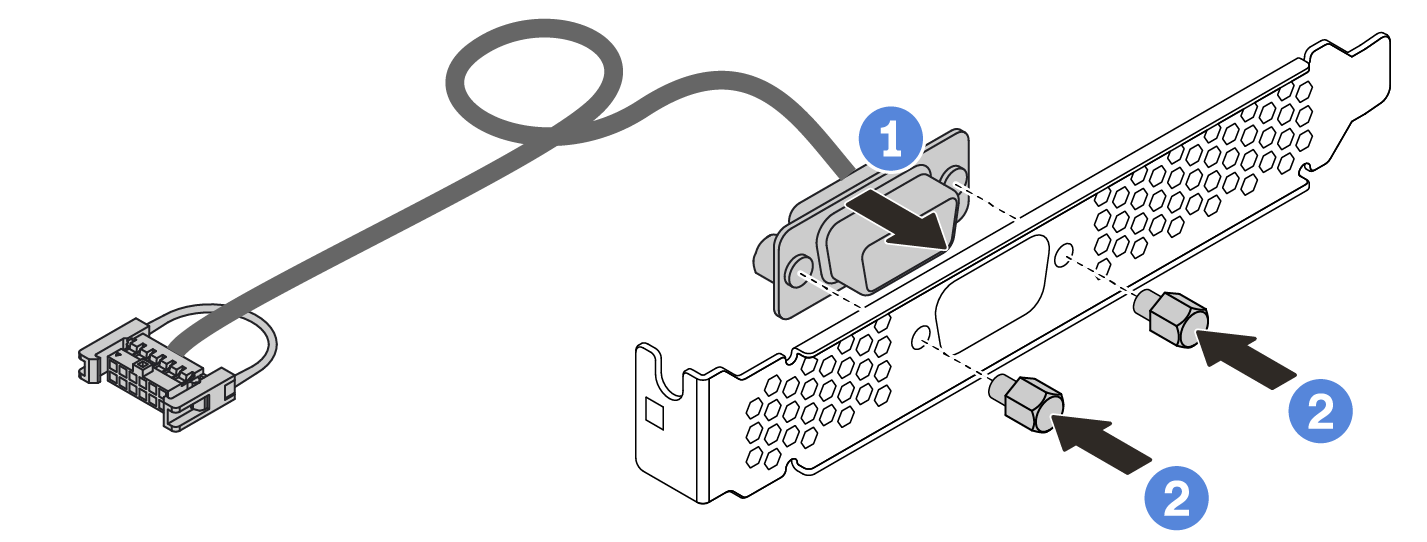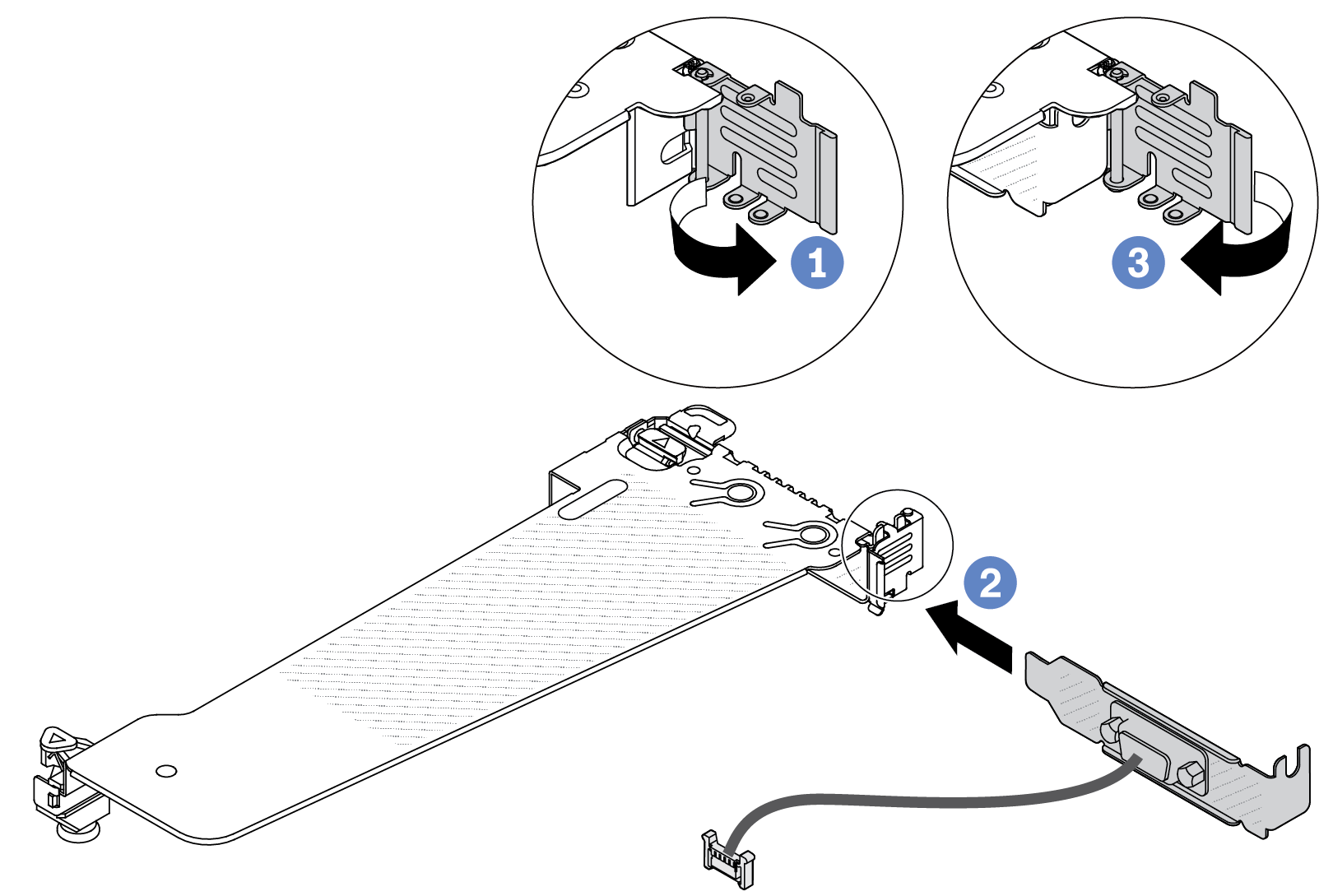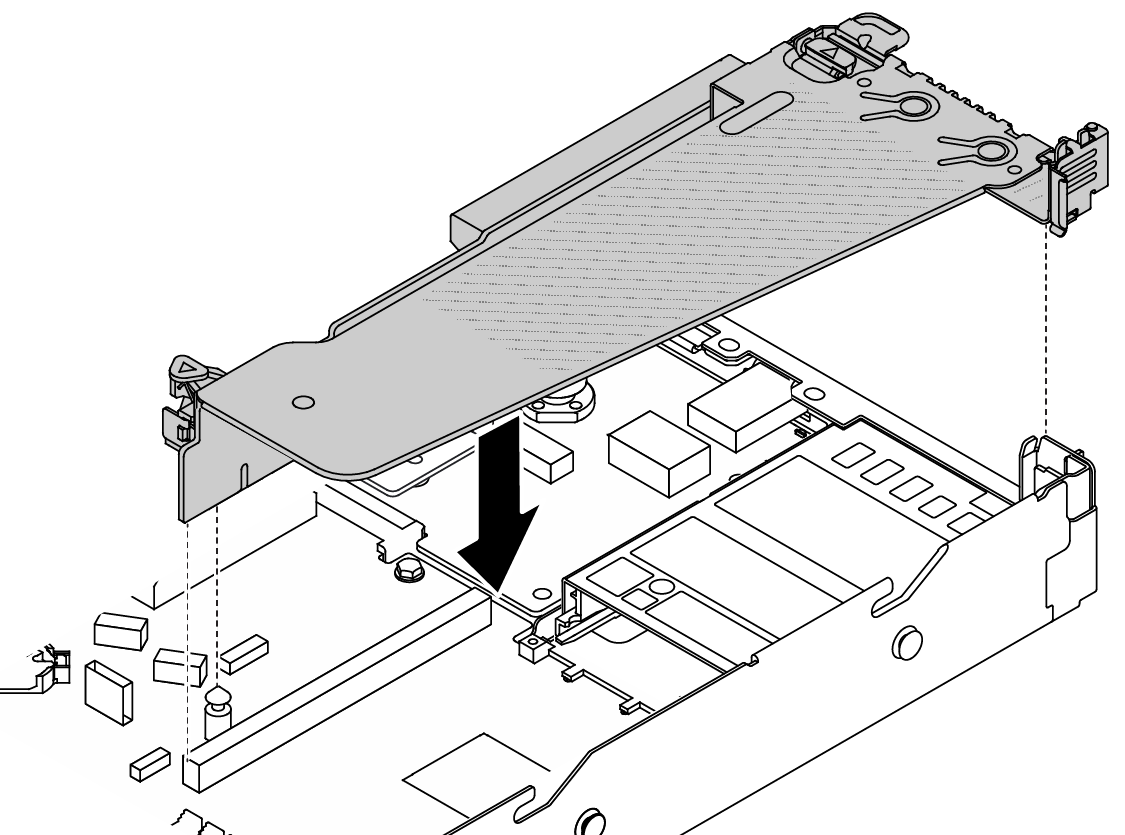Install a serial port module
Use this information to install a serial port module.
About this task
Read Installation Guidelines and Safety inspection checklist to ensure that you work safely.
Power off the server and peripheral devices and disconnect the power cords and all external cables. See Power off the server.
Prevent exposure to static electricity, which might lead to system halt and loss of data, by keeping static-sensitive components in their static-protective packages until installation, and handling these devices with an electrostatic-discharge wrist strap or other grounding system.
- A video of this procedure is available at YouTube.
Procedure
After you finish
Complete the parts replacement. See Complete the parts replacement.
From the UEFI Setup page, click . Change both Console Redirection and SP Redirection setting to Enabled.
- To enable the serial port module on Linux or Microsoft Windows, do one of the followings according to the installed operating system:NoteIf the Serial over LAN (SOL) or Emergency Management Services (EMS) feature is enabled, the serial port will be hidden on Linux and Microsoft Windows. Therefore, it is required to disable SOL and EMS to use the serial port on operating systems for serial devices.
For Linux:
Open the ipmitool and enter the following command to disable the Serial over LAN (SOL) feature:
-I lanplus -H IP -U USERID -P PASSW0RD sol deactivateFor Microsoft Windows:
Open the ipmitool and enter the following command to disable the SOL feature:
-I lanplus -H IP -U USERID -P PASSW0RD sol deactivateOpen Windows PowerShell and enter the following command to disable the Emergency Management Services (EMS) feature:
Bcdedit /ems offRestart the server to ensure that the EMS setting takes effect.
Demo video

 Align the two screw holes on the cable connector to the bracket.
Align the two screw holes on the cable connector to the bracket. Install the two screws to the bracket.
Install the two screws to the bracket.
 Close the retention latch and ensure that the serial port module is securely installed.
Close the retention latch and ensure that the serial port module is securely installed.